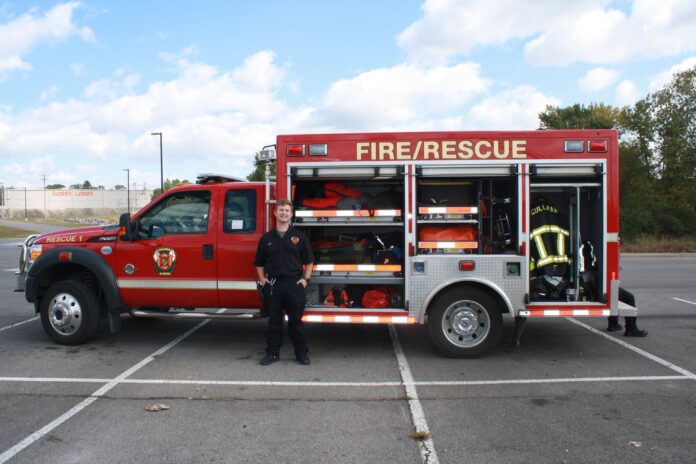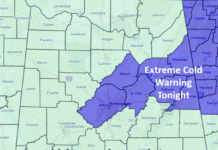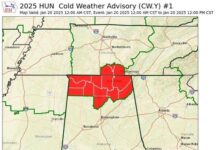
CULLMAN, Ala. – October is a month of fun: hayrides and pumpkin patches, costumes and candy. If Alabama is your home, it also brings some crazy weather. Monday may require shorts and a tank top, and by the time Wednesday rolls around, it’s time to crank up the heat. Southern weather is unpredictable and staying safe is paramount. Space heaters, electric blankets and heating pads may be cozy, but if you aren’t careful and smart with your heating appliances, they can also be catastrophic. Fire and rescue teams from all across the state are taking to the public and spreading fire safety awareness and sharing tips on safely staying warm.
Ian Namie, a paramedic/firefighter at Cullman Fire Rescue explained the cornerstones of fire safety: proper maintenance of heating equipment, maintaining an appropriate number of plugs in one outlet, placing the heating module away from any flammable items and a nationwide platform, “Close Before You Doze.” Failing to keep up with proper maintenance of heating equipment is the most common catalyst for house fires.
Namie offered a few tips. “Make sure that your stuff stays in date, staying up to date with your equipment making sure that it’s not super old or dusty,” he said. Soap and water, or a lightly dampened cloth should be used to clean heaters and portable heating units; canned compressed air can clean any dust and debris from crevices and cracks that a cloth can’t reach.
Overloading outlets is also a major cause of residential fires.
Said Namie, “Make sure that when you’re plugging things in you don’t overpower the outlet. That’s a big one. Don’t have 16 plugs in one outlet.” A standard home outlet should have no more than 1,500 watts of power being sent out to devices at once, so check all devices for wattage before using that outlet extender. Extenders and surge protector strips might have six to eight outlets, but they should never be used all at once.
Flammable items should be moved away from any heaters or heating elements. Curtains, blankets, clothing, paper or any items that could catch fire should stay a minimum of 3 feet away from heaters in the home. Fabric and paper catch fire and spread rapidly causing devastating damage in a matter of minutes; moving items that could ignite could thwart a fire sparking.
If a fire erupts and a household is sleeping, a bedroom with a closed door can reach 100 degrees Fahrenheit rather quickly. In the same vein, a bedroom with an open door reaches 1,000 just as rapidly. “Close before you Doze” is a national platform put forth by the Fire Safety Research Institute, focusing on habits such as shutting a door to a bedroom before bed, to pare down the number of deaths and injuries due to residential fires.
Describing the benefits of Close Before You Doze, Namie said he has seen the difference the barrier of a door makes. “It makes a huge difference in the house whether or not your door is closed when you go to sleep. There are plenty of pictures you can find where if you looked in that one room, it looked like the house never caught fire. What it does is help the smoke from the heat from traveling into that room. It’s night and day.”
Space and wall heaters are common fixtures in many American homes, and many of them are used without difficulty or malfunction. Following fire and heating safety guidelines could potentially avoid a homeowner’s worst nightmare, and even save a life.
Get more tips from Cullman Fire Rescue at www.facebook.com/CullmanFireRescue.
Copyright Humble Roots LLC, 2023. All Rights Reserved.























